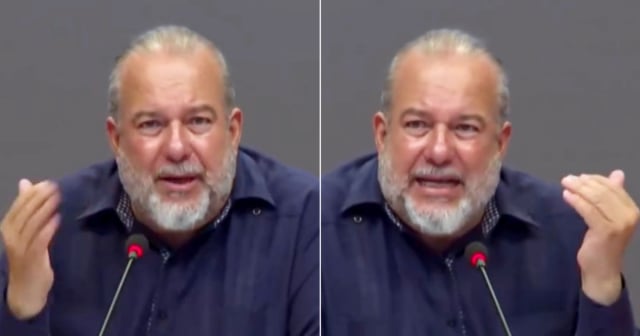Confirmed: the Palace of the so-called "revolution" insists on creating "scapegoats" among local authorities so they can pay for the poor management of the central government, primarily regarding the burning issue of food production.
Since, at the end of 2021, the Cuban ruler Miguel Díaz-Canel declared the increase of competencies for municipalities as one of his priorities, the central power of the Cuban regime has been seeking to hold local entities responsible for ensuring that Cubans have their basic needs met.
Despite its centralized and planned nature, the leadership of the communist regime wants to create in Cubans the perception that the food shortages, high prices, and food insecurity that this causes are the responsibility of local leaders, and not the strategies formulated in Havana from their offices and air-conditioned salons.
In addition to the series of statements in this regard, this Tuesday, the Cuban Vice President, Salvador Valdés Mesa, expressed during a meeting with the governors of the country and the mayor of the Isle of Youth, explaining to them that "strengthening municipal work is key to the economic development of the territories and the sustainability of social programs," according to a report from NTV.
According to the official media, the issue of the "transfer of idle state lands in usufruct by the municipal administration council" highlighted "the responsibility of local governments stemming from the decentralization of competencies and the fundamental role of each territory in food production."
"This is a decentralization of decisions that the government is taking on. The Municipal Administration Council is starting to assume that responsibility... There were distortions... This is decentralization: each municipality has to have autonomy and has to make decisions... You take on that responsibility," stated the communist leader.
For his part, Prime Minister Manuel Marrero Cruz emphasized that "we have to give the land to those who are truly going to produce."
"It is necessary to take into account the strategy of the municipality, the needs of the municipality, and the balance of what the municipality demands at the time of making this decision," explained the prime minister.
In December 2021, the year in which the Cuban regime felt the roar of the streets with the massive and historic protests of July 11, Díaz-Canel stated that both the Economic Plan and the State Budget for 2022 would have a special focus on the issue of transferring powers to the municipalities.
"There will be a group of processes that will be more horizontal, as they will be deployed at the territorial level, and this will have to exercise its competencies with more responsibility," affirmed the also first secretary of the Communist Party of Cuba (PCC), emphasizing the need to undertake "an entrepreneurial resizing; because we need to ensure that the municipality has robust local productive systems."
In this regard, Díaz-Canel assured, "we are working on municipalizing a significant number of agricultural entities; and we will have to do the same with other sectors so that the territories have their own state system" (sic).
At the end of May this year, while visiting the municipality of San Luis in Santiago de Cuba, the ruler returned to this topic and stated that "we are convinced that there is land here to produce the food we need here, in the municipality. And the hands are here, the strength is here. And the courage."
“The other thing we need to control is that those who sell food do not raise prices indiscriminately. To the same extent that we have more food, prices must come down. But also in the midst of this situation, there are people who set prices much higher than they should be. Yes; and that takes advantage of the people. But we must confront that together to move forward,” the leader added.
Once again, the straw man designated by Raúl Castro repeated the regime's favorite talking point these days: the responsibility falls on local governments. They call that "correcting distortions and reinvigorating the economy."
"We have to reach the point where this country is self-sufficient in food. That's what will give us real security. Not depending on imports. But we have to believe in that. And each municipality has to grow its own food. And not be thinking about what is going to come in through the basket," said Díaz-Canel el Guapo at the beginning of June.
What do you think?
COMMENTFiled under:
